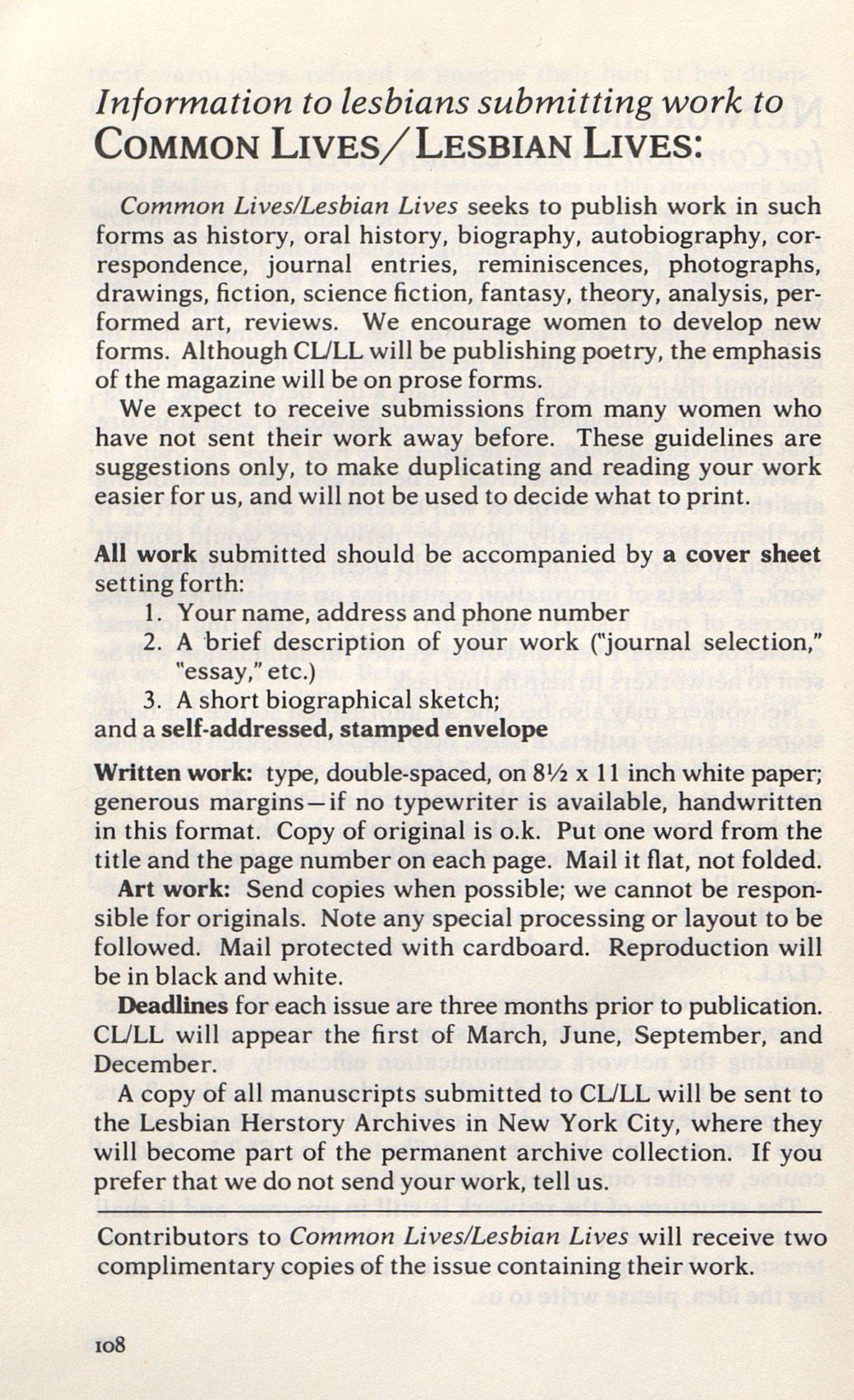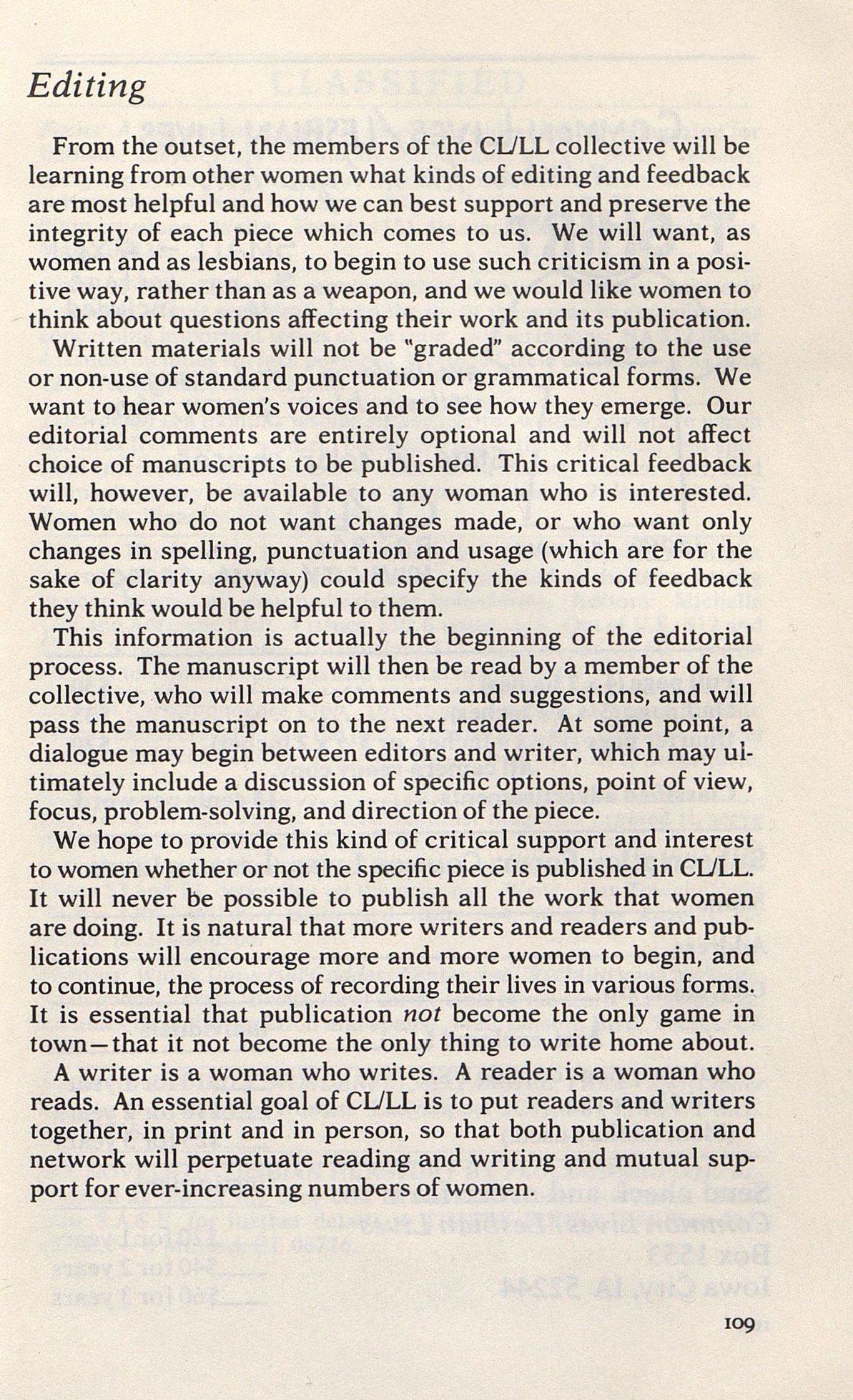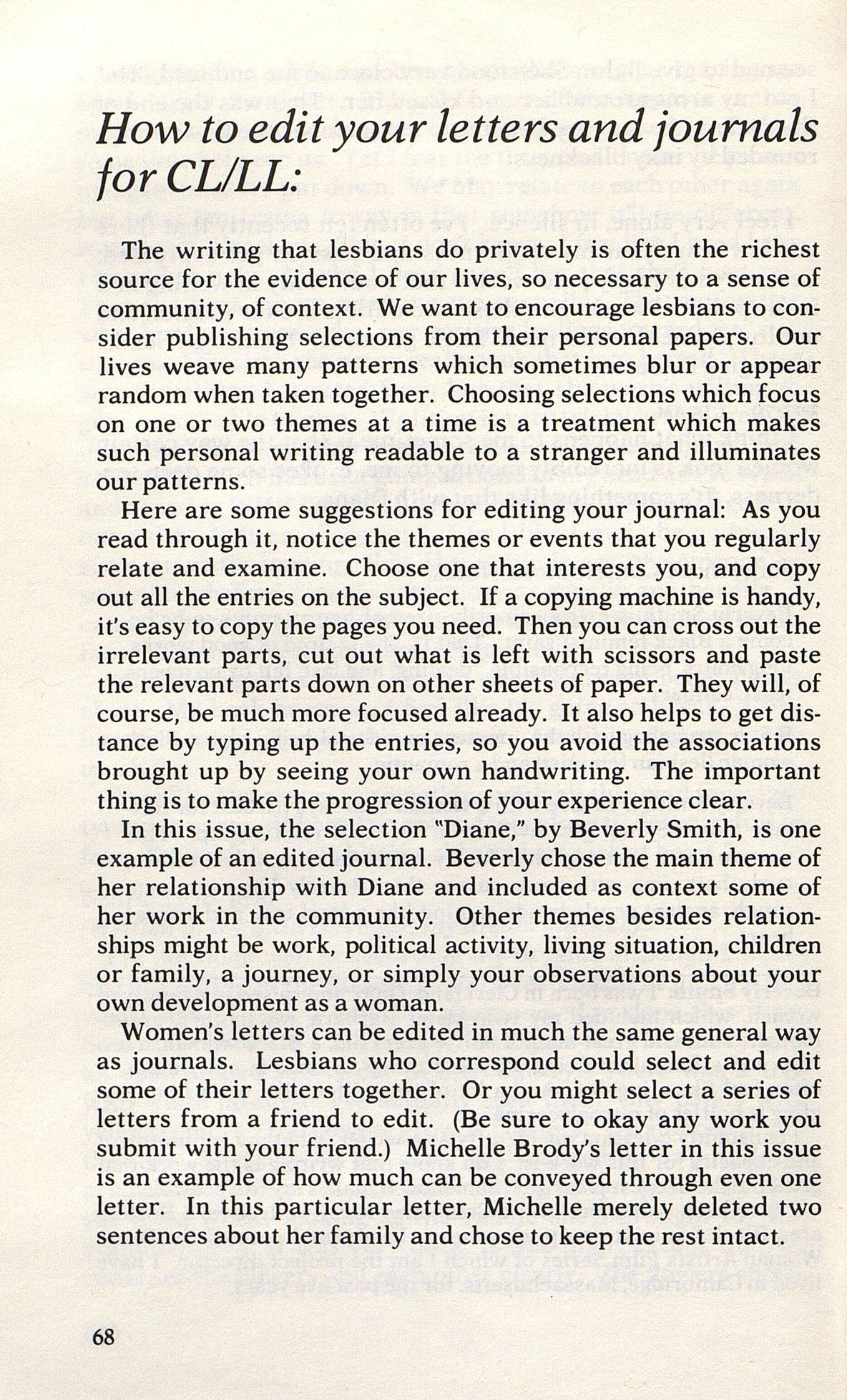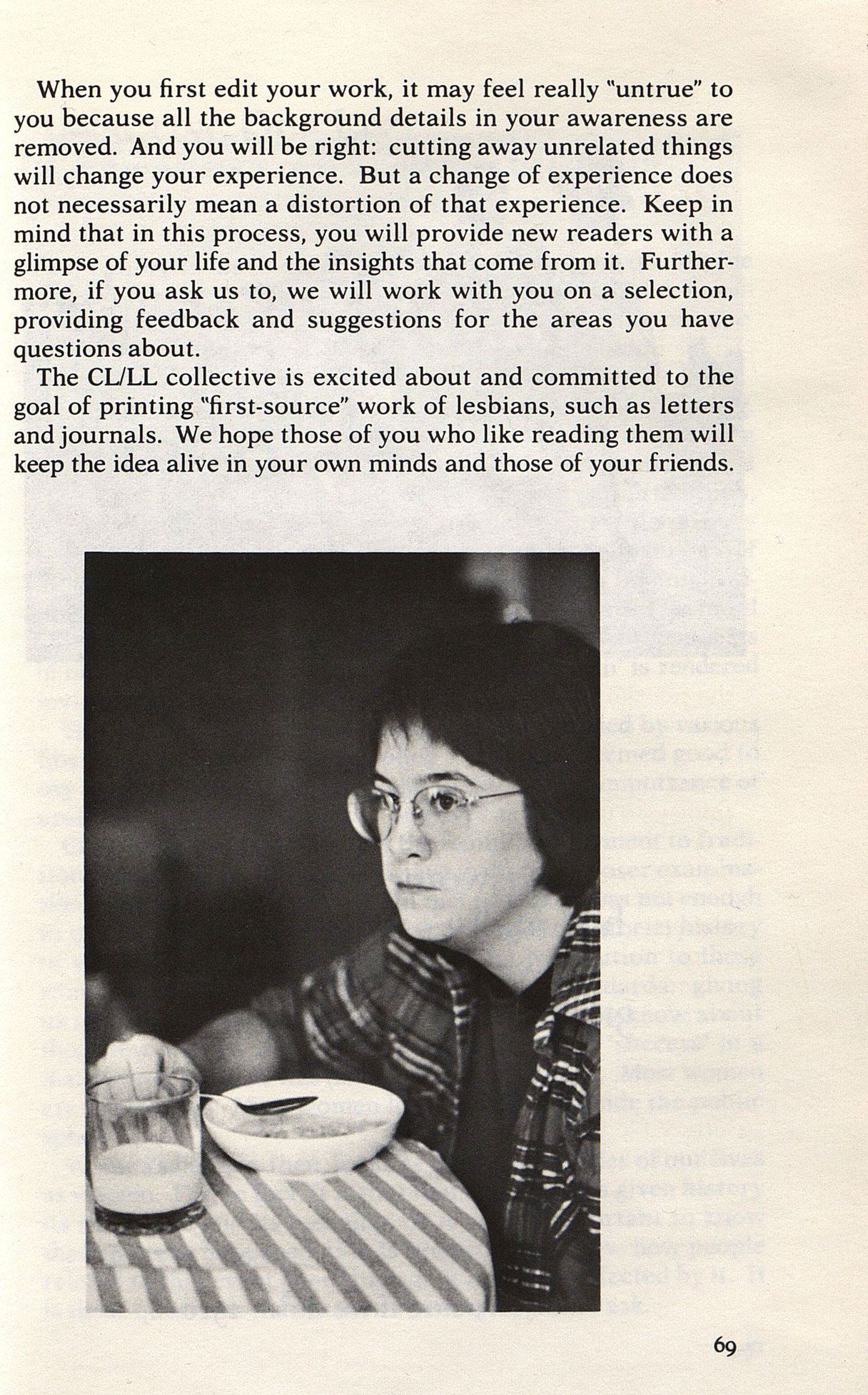
Published from 1981 until 1995, Common Lives/Lesbian Lives embraced an editorial agenda that was radical for its time: the Iowa City-based magazine, often abbreviated to simply CL/LL, ran on an entirely open call basis, and took the stance never to impose edits on any of its submissions, even for grammatical or spelling errors. This strategy extended even to its author bios, allowing each contributor to self-identify with any amount of detail and description.
Through this system, the publication’s founders Tracey Moore, Anne Lee, and Cindy Cleary hoped to attract a multitude of lesbian voices across differing groups, communities, and backgrounds and to house them together in one common place. They welcomed submissions ranging from oral history and autobiography to journal entries and correspondence, as well as theory, fantasy, art works, and science fiction. Editorial openness attracted many contributors who had never before thought to produce work for publication. Or, as CL/LL puts it in a note on their editing strategy in the very first issue, “A writer is a woman who writes. A reader is a woman who reads.”


CL/LL was one of the first separatist lesbian magazines to be published outside of the main harbors of the movement in the East and West coasts. Co-founder Moore referred to the periodical as “a portrait of a place and a city.” The founders were already part of the lesbian scene in the area through their work on publications such as Ain’t I a Woman and Sinister Wisdom, and their links with organisations like Iowa Women’s Press and Iowa Women’s Liberation Movement.
Alongside the publication itself, CL/LL organized a collective of the same name to foster community, bringing together volunteers, Iowa-based publishers and printers, women’s organizations, and the magazine’s contributors. Its aim was to facilitate an accessible, inclusive environment of mutual support and energy that fed into the lesbian DIY ecosystem of Iowa, and that continued to explore the ideas printed within the magazine.
“From the very beginning, the magazine made a commitment to reflecting a range of cis lesbians and their experiences.”
What makes the magazine stand out from its other separatist counterparts, though, is that CL/LL actively sought to foster an accessible model of editorial support and collaboration for its community. It actively solicited and printed in every issue the work of “lesbians of color, Jewish lesbians, fat lesbians, lesbians over fifty and under twenty years old, disabled lesbians, poor and working-class lesbians, and lesbians of varying cultural backgrounds.” From the very beginning, the magazine made a commitment to reflecting a range of cis lesbians and their experiences. Its aim was very clearly to be inclusive of all cis lesbians. But: cis lesbians only.
Looking from today, it is important to acknowledge that CL/LL practiced both inclusivity and exclusion. Like many other separatist lesbian projects, the publication catered specifically an audience of cisgender lesbian women, a position especially ostracizing to trans and bisexual people. Even in its own moment, CL/LL received criticism for its separatist approach: During its years publishing, a bisexual woman led a discrimination complaint with the University of Iowa Human Rights Commission, claiming her submissions were rejected due to her sexuality.
“Like many other separatist lesbian projects, the publication catered specifically an audience of cisgender lesbian women, a position especially ostracizing to trans and bisexual people.”
Despite its separatist agenda, the self-authored contributor bios in CL/LL make apparent the otherwise varied voices and backgrounds represented in each issue. Rather than at the end of the publication, bios were placed at the end of the page after each contributed work, and authors were free to adopt any name they desired. Flipping through the magazine, the reader might encounter “Lou Blackdykewomon,” a “Black dyke feminist/moma/writer parent” living in Columbia, South Carolina. “I concentrate heavily on work dealing with Black ... other Third-world dykes,” her bio reads, “Also I’m trying to form a support network for dyke moms anywhere with handicapped kids.” Another contributor went only by “Kelly,” describing herself as a “white, working class, and... a lesbian for twelve years.” “I have been fat all my life. I currently publish a newsletter which connects all the Feminist Fat Activists in the country as well as a few overseas.”
In tandem with the contributions itself, the bios offer intimate insights and perspectives onto the lives and struggles of the writers. In another entry, written by a “working-class womon, disabled, and ‘white’—of Native American descent,” the author writes that she feels “more ... more isolated from ‘the womin’s community,’ which I think is an unrealized myth. I hope more of us will make a genuine commitment to all wimmin, and lovingly work out of differences while we still have time.”


Editorial statements in CL/LL emphasize the importance of lesbian oral histories to break from narratives learned in school, and include guides to editing personal letters and journals for submission to the magazine. A copy of all manuscripts submitted to CL/LL, even those not chosen for publication, was sent to the Lesbian Herstory Archives in New York to be catalogued and preserved. “The writing that lesbians do privately,” the editors claim, “is often the richest source for the evidence of our lives, so necessary to a sense of community, of context.”
Amy Gowen (she/her) is originally from Hereford, UK and more recently living in Geldrop, the Netherlands. She’s an independent researcher, writer, editor, and curator with a background in English Literature and Cultural Theory. Her interests lie in using language and discourse to engage in ideas around collectivity, community, care, and the commons.
This text was produced as part of the L.i.P. workshop, and has previously been published in the Feminist Findings zine.

















